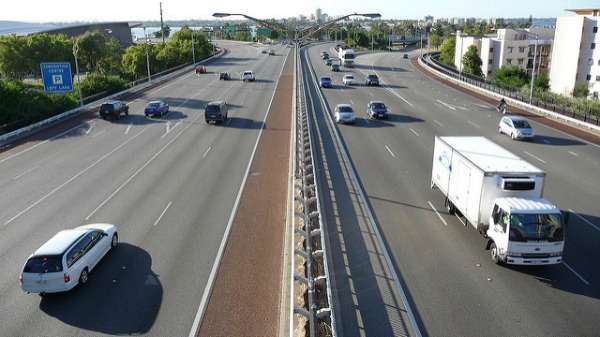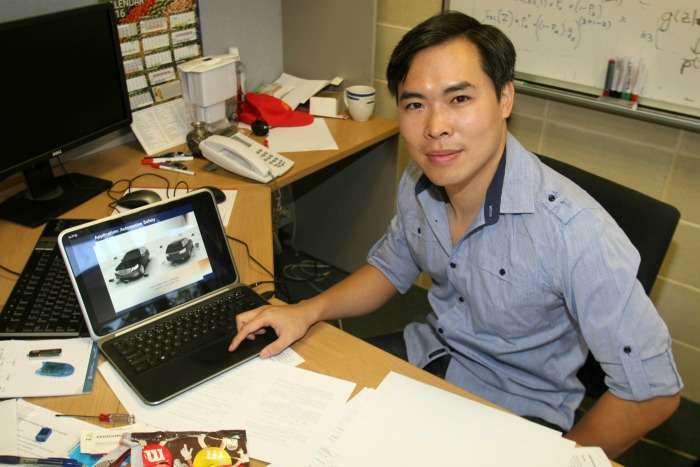More advances toward autonomous cars

Having your car drive itself to wherever you want to go—a concept immortalised in Minority Report or Total Recall—is one step closer with local researchers about to install lane changing capabilities in a self-driving car.
In 2014, the "brains" for an autonomous car that could drive in a straight line was celebrated by Curtin University Associate Professor Ba Tuong Vo and his team.
This week Prof A/Vo announced they had successfully improved their car's control and estimation algorithms, which directs the vehicle's software and essentially makes an autonomous car a reality.
The algorithms were created through a joint project between Curtin, Daimler (the research arm of Mercedes Benz) and Germany's Ulm University.
These algorithms are necessary for performing unassisted lane changes and brings the collaboration once step closer to their goal of helping to produce a low cost self-driving car.
"Driving the car in a straight line entails putting it on a straight course and telling it to stop if anything bad happens," Prof Vo says.
"But getting the car to drive normally is much more complicated because the vehicle has to know when and where to go, what to stop for and if there is something bad happening to slam on the brakes."
Prof Vo says the latest development is the most exciting development because giving the car the ability to change lanes is the most complex part of making the car truly autonomous.

But Professor of Sustainability at Curtin University, Peter Newman says although autonomous car technology is quickly advancing, people should keep thoughts of a driverless car future in perspective.
He says the possibility of self-driving cars coexisting with conventional cars is problematic.
Prof Newman's skepticism was given oxygen in February after Google's self-driving pod crashed in the United States, leaving a "pronounced shadow" on the company's self-driving car program.
Meanwhile, the WA Government recently announced a French-made shuttle bus similar to Google's self-driving pod is set to be trialed on Perth roads, in the near future.
"The technology has the potential to be used in providing bus and train capacity increases, but where you've got wall to wall robot controlled cars taking over cities is horrific," Prof Newman says.
"The problem with cities is they've got too many cars in them already and by adding more cars it doesn't help reduce our automobile dependence, which is already causing congestion and is not economically sensible."
Provided by Science Network WA
This article first appeared on ScienceNetwork Western Australia a science news website based at Scitech.





















